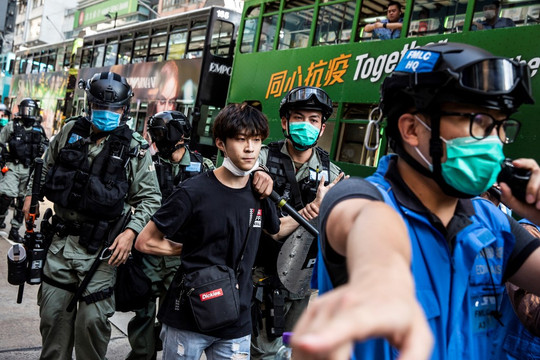The vice chairman of the Standing Committee of the National People’s Congress (NPC), Wang Chen shared the NPC’s plan to legislate national security mechanisms for Hong Kong, targeting “separatism, subversion of state power, terrorism and interference” on May 21. Once the NPC endorses the law, it must be approved by the Hong Kong government who has already voiced ‘full support’ for the bill.
While Wang maintained the law would have no impact on Hong Kong’s autonomy, across China, the IFJ has monitored ongoing human rights abuses and media violations against journalists under the guise of national security. The sentencing of Swedish citizen and journalist, Gui Minhai in February highlighted the limits on freedom of expression across China when the Court of Ningbo City, in an eastern port city in China handed down a ten year prison sentence for “illegally providing intelligence overseas”.
The announcement of the proposed law was followed by global outrage and local protests starting on May 22 amid fears the law would bring an end to Hong Kong’s autonomy. Reports state police fired teargas at thousands of demonstrators, arresting at least 180 Hong Kong residents, making this the largest protests since the introduction of the Covid-19 social distancing rules. Further accounts show police intimidating and targeting journalists covering the protests with batons and water cannons. The extent of the Hong Kong police violence against journalists over the weekend is unconfirmed.
The new Hong Kong national security laws and protests occurred only a week after Hong Kong’s Independent Police Complaints Commission released its report on police behaviour during the protests, absolving police of misconduct with little mention of the police attacks on journalists.
The IFJ said: “Historically, journalists have already faced scrutiny, threats, physical attacks and legal action for carrying out their work as a journalist in Hong Kong. Beijing’s national security law poses a mammoth threat to democracy and freedom of expression in Hong Kong, limiting dissent under a veil of national security. The IFJ urges Hong Kong authorities to acknowledge how crucial it is to protect the public’s right to know.”

